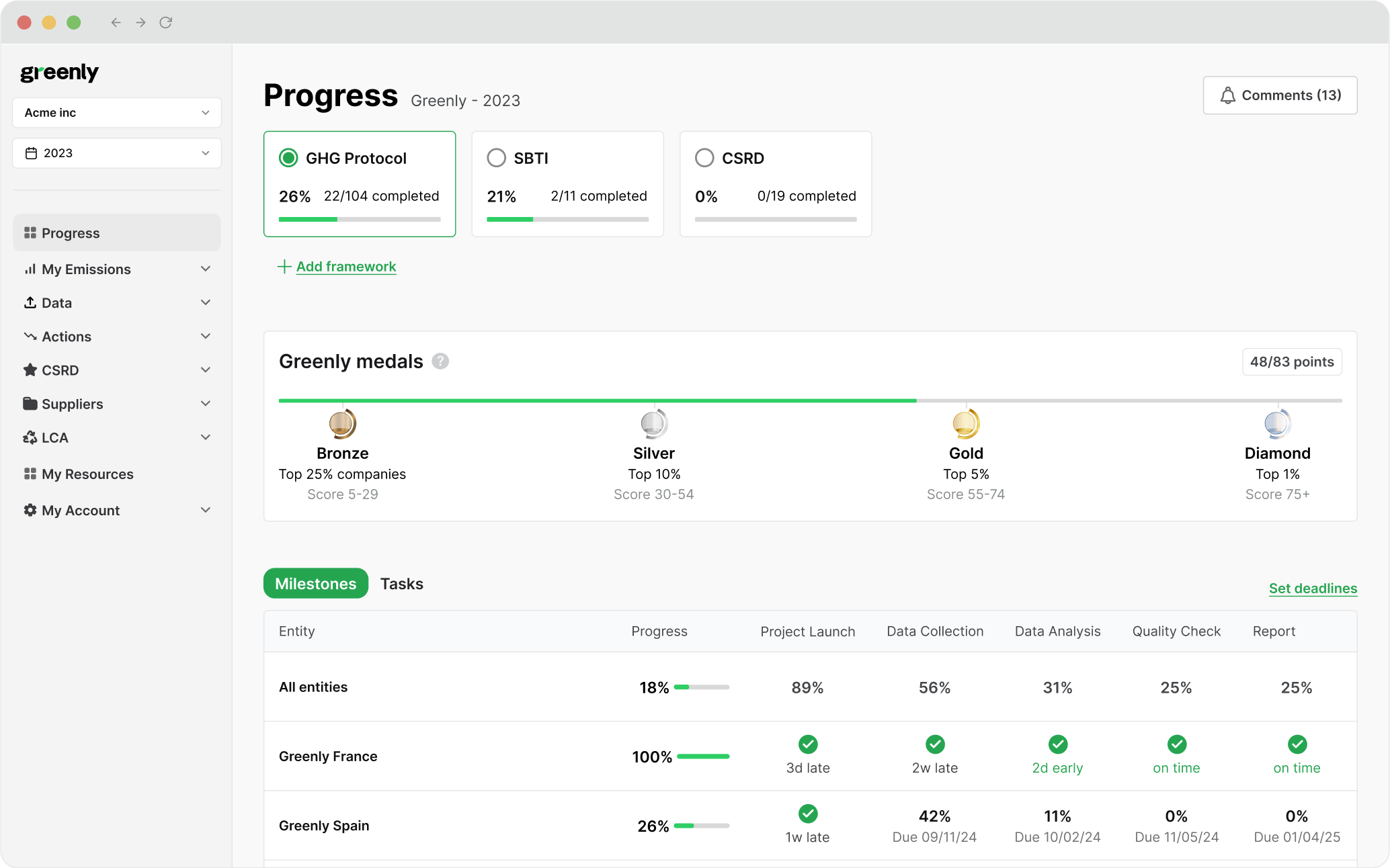
What are the 3 Pillars of Corporate Sustainability?
In this article, we'll explore what the 3 pillars of corporate responsibility are, why they're important, and how businesses can turn them into practical action.
ESG / CSR
Industries



In 2025, everyone is keeping an eye out in terms of their shopping habits and how they may impact sustainability – such as by opting for refurbished electronic devices, shopping second hand at a thrift store, and practicing overall ethical consumerism.
As excess consumerism remains one of the largest culprits behind our growing carbon footprint, people around the world are growing more concerned and conscious regarding their purchasing habits – bringing concepts such as ethical consumerism to light.
In this article, we’ll explain what ethical consumerism is, why it’s important, examples of ethical consumerism, and how to get started.
Ethical consumerism, sometimes referred to as conscious consumerism or green consumerism, alludes to the practice of eco-friendly shopping as an effort to make a positive economic, environmental, and social impact on your purchases and mitigate further harm to the planet.
💡As a whole, the main goal of ethical consumerism is to choose products and services that adhere to the values of sustainability and ethical sourcing – hoping that in turn, the item in question doesn’t further contribute to the already existing climate crisis.
Here are some of the hallmark qualities of ethical consumerism:
👉 Ultimately, ethical consumerism is a lifestyle which can help people to improve their purchasing habits and ensure their day-to-day consumption patterns align with sustainability, and social responsibility.

Ethical consumerism is crucial as we battle against climate change, seeing as one of the largest contributors to global warming is excess consumption as a whole, which ethical consumers can help us to stray away from.
💡Our habit of purchasing items only to throw them into the landfill later is a key component in reducing our worldwide carbon footprint – seeing as a whopping 1.92 million tonnes of textile waste is created each year in addition to 62 million tonnes of e-waste.
Here are a few other reasons why ethical consumerism is important in the midst of climate change:
👉 Overall, ethical consumerism is a vital component to solving the climate change crisis – as much of our excess emissions created around the world are a result of excess consumerism

There are several examples of ethical consumerism, such as choosing products with eco-friendly packaging, shopping for products in bulk, recycling old items, and even opting for sustainable investments.
Essentially, any effort to purchase or use items or services that align with greater environmental sustainability and social responsibility can fall under the umbrella of ethical consumerism.
💡Ethical consumerism doesn’t have to involve turning your life or business on its head, as even small actions that allow you to take part in ethical consumerism can make a difference long-term for your private life, your company, and even the planet.
Here are seven different examples of ethical consumerism:
This can include a wide variety of products that make an effort to protect our planet from further emissions, such as by:
Products and services with certified eco-labels, such as Fair Trade Certified chocolate, coffee, or clothing can help those adhering to the ideals of ethical consumerism ensure that they are purchasing products that ensure employees remain subject to fair wages and safe working conditions.
Furthermore, seeking out products which make use of ethically sourced materials such as silk, organic cotton, hemp, or linen can help us to reduce our global environmental impact and ensure ethical consumerism is well and alive.
More often than not, vegan products will not only refrain from the use of animal byproducts such as fur, milk, or eggs – but will avoid testing products on animals.
Examples of these products include:
We’ve written about eco-friendly fashion a lot at Greenly, because we believe that what we wear on a daily basis is one of the most approachable ways to get started with sustainability.
Here are some ways that sustainable fashion adheres to the ideals of ethical consumerism:
Businesses that make an effort to employ the use of green infrastructure, install energy efficient light bulbs, or even utilize renewable energy sources such as from solar panels or wind turbines are all examples of ethical consumerism.
Any effort to mindfully reduce energy consumption can be considered as a form of ethical consumerism, such as:
Someone who uses a reusable water bottle or shopping bag instead of single-use plastic is already doing a great job following the ideals of ethical consumerism.
This can also include using items such as:
Unbeknownst to most, sustainable finance is an excellent way to follow the ideals of ethical consumerism – as subscribing to banks that avoid funding fossil fuels or other ethical industries can help individuals and businesses alike to reduce their carbon footprint.
This can include:
👉 In the end, any and all of these avenues of ethical consumerism can help people to boost their efforts to tackle both sustainability and social justice while also reducing their environmental impact.

While ethical consumerism can allow people to avoid impulsive or unethical purchases, it doesn’t come without its challenges – such as how many of the world's products are still made overseas contribute to freight emissions, and that individual purchases don’t stop goods and services that create a negative environmental impact from being made in the first place.
The table below will depict some of the challenges of ethical consumerism:
| Challenge | Description | How to Overcome |
|---|---|---|
| Limited Impact on Businesses | Individual ethical purchasing decisions may not significantly influence large corporations' production practices. | Advocate for corporate transparency and push for stricter regulations on ethical practices. |
| Overseas Production Monopolies | Many companies rely on large suppliers overseas that lack regulation, making it difficult to ensure ethical production. | Support initiatives that improve labor standards abroad, such as certifications or third-party inspections. |
| High Costs of Ethical Products | Ethical goods are often expensive, making them inaccessible for lower-income consumers. | Encourage affordable alternatives like thrift shopping, and advocate for subsidies on ethical products. |
| Fast Fashion's Influence | The rise of fast fashion increases demand for rapid production, leading to unethical labor practices. | Promote a culture of minimalism and slow fashion, focusing on quality over quantity. |
| Need for Systemic Change | Ethical consumerism alone is insufficient; political advocacy and systemic reforms are needed for real impact. | Engage in political advocacy, support policy changes, and educate others on systemic issues. |

Ethical consumerism may seem daunting at a first glance, but it may be easier to adapt the principles of ethical consumerism than you might think.
Here are some ways you can get started with ethical consumerism:
Overall, ethical consumerism is imperative in the midst of climate change – as small efforts to ensure the things we buy, eat, and use are doing their best to mitigate an excessive impact can add up and make an unforeseen difference.
If reading this article on ethical consumerism has inspired you to consider your company’s own carbon footprint, Greenly can help.
At Greenly we can help you to assess your company’s carbon footprint, and then give you the tools you need to cut down on emissions. We offer a free demo for you to better understand our platform and all that it has to offer – including assistance on how to reduce emissions, optimize energy efficiency, and more to help you get started on your climate journey.
Learn more about Greenly’s carbon management platform here.
